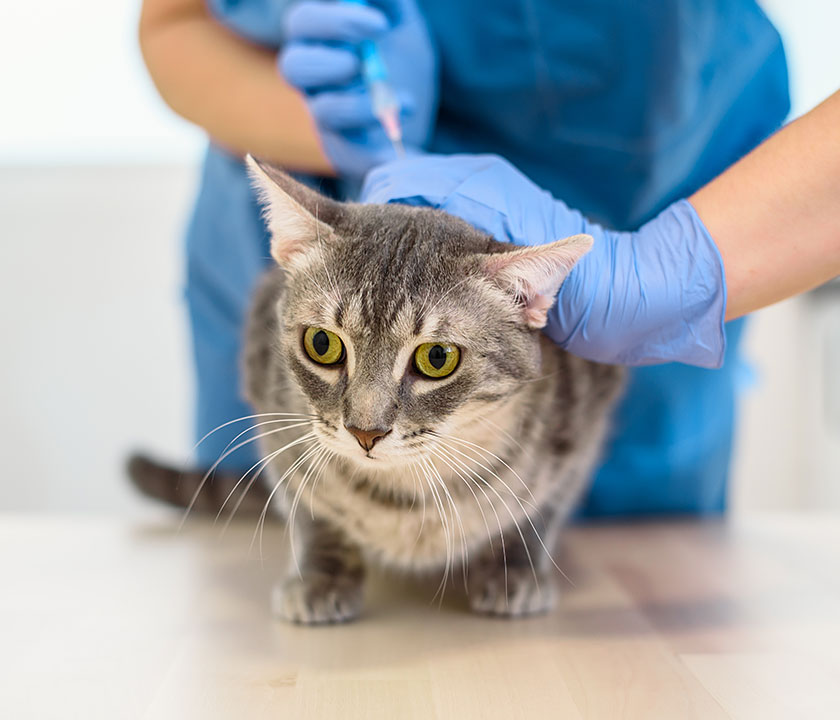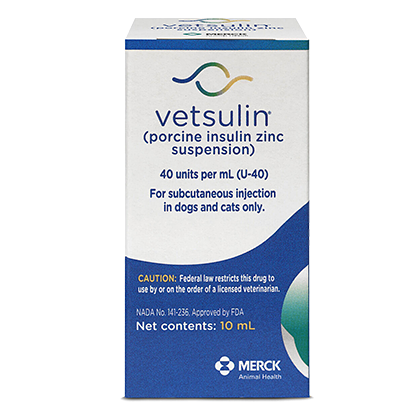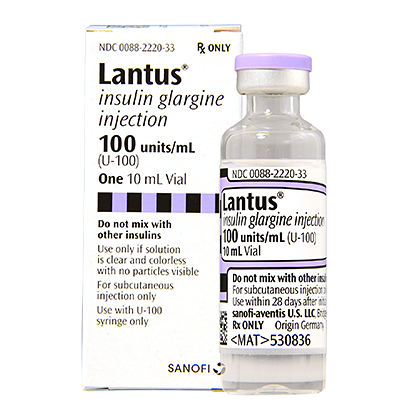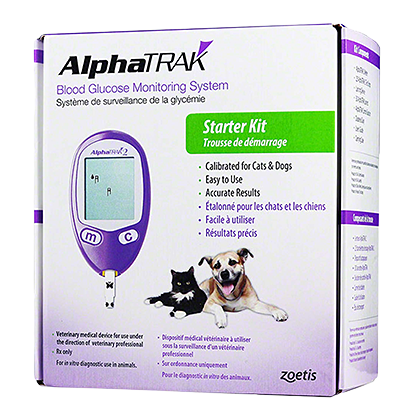What is Diabetes in Pets?
How Diabetes Affects Dogs & Cats
Diabetes mellitus is a metabolic disorder that affects about 1 in 300 dogs and 1 in 200 cats.
In healthy pets, the pancreas produces a hormone called insulin. Insulin regulates blood sugar by helping the cells absorb glucose, or sugar from the bloodstream to use as energy.
Type I or insulin-dependent diabetes, which is most common in dogs, occurs when the pancreas is compromised, either due to inflammation from recurring bouts of pancreatitis, or when the immune system attacks the pancreas.
Type II diabetes or non insulin-dependent diabetes is usually seen in cats. Though the pancreas still produces insulin, the cells no longer respond normally and are unable to absorb glucose. This phenomenon is known as insulin resistance.
With both Type I and Type II diabetes, the body's cells are unable to absorb glucose from the bloodstream, resulting in hyperglycemia or high blood sugar.
The kidneys normally filter glucose from the bloodstream and absorb the excess, but when they become overwhelmed, the dog or cat will excrete glucose in their urine. This is what causes excessive thirst and urination in pets with untreated diabetes.
When the body is unable to use glucose for energy, it will instead break down and use body fat. This is why dogs and cats with diabetes often have a higher appetite, yet experience unexplained weight loss. As the liver breaks down fat, it produces ketones. Excessive ketone production leads to ketoacidosis, a life-threatening medical emergency that can cause seizures and coma.
If your pet may be showing early signs of diabetes, including excessive thirst/urination, unexplained weight loss, excessive hunger, lethargy, sweet-smelling breath, and/or vomiting, see your veterinarian as soon as possible. Left untreated, undiagnosed diabetes will lead to a medical emergency that can be fatal.
Diabetes is a serious chronic condition, but that doesn't mean it's a death sentence. The good news is that diabetes is highly manageable in pets, and up to 90% of cats can go into complete remission. For dogs, diabetes is usually life-long, but many can live for many years with few to no symptoms with a little help from their humans.
Managing Diabetes in Pets
At first, receiving a diabetes diagnosis for a pet can be overwhelming. But with just a few changes to your pet's lifestyle, it won't be long until they're feeling much better. Work with your vet to create a diabetes management plan that helps your dog or cat thrive after diagnosis.
Managing diabetes in pets can look like:
- Check blood sugar at home for more accurate, low-stress monitoring
- Give insulin immediately after meals or as instructed by your veterinarian
- Stick to vet-recommended diet changes, which may be a high-protein, low-carb diet for cats and high-fiber, low-fat for dogs.
- Watch for changes in eye appearance and vision due to cataracts, seen in up to 80% of diabetic dogs.
- Keep up regular vet appointments to monitor your pet's improvement and make sure their treatment protocol is working for them.
Unfortunately, up to 25% of pets are euthanized on the day of their diabetes diagnosis, likely due to their pet parent not realizing that managing their dog or cat's diabetes doesn't have to be prohibitively expensive, difficult, or long-suffering.
While most pets are quite ill at diagnosis, their health greatly improves once their blood sugar is under control. With the right treatment protocol, pets diagnosed with diabetes can live for many healthy, happy years.
Diabetes Care For Pets
PetMeds® carries prescription diabetes medication for pets, insulin, syringes, specialty and prescription diabetes pet foods, and other essentials to care for your dog or cat.
Save time and money when you get everything your pet needs delivered to your doorstep.
Never Miss A Dose With PetMeds® AutoShip
Save 35% OFF your first AutoShip order | Use code SAVE35 in cartFrequently Asked Questions about Diabetes in Pets
In cats, diabetes is usually caused by obesity, lack of exercise, and poor diet, though age, genetics, and gender are other risk factors. It can often be reversed with temporary use of medication and healthy lifestyle changes.
Still have questions? Learn more with our free Pet Health Advice resource center or talk to your veterinarian about diabetes in pets.










































